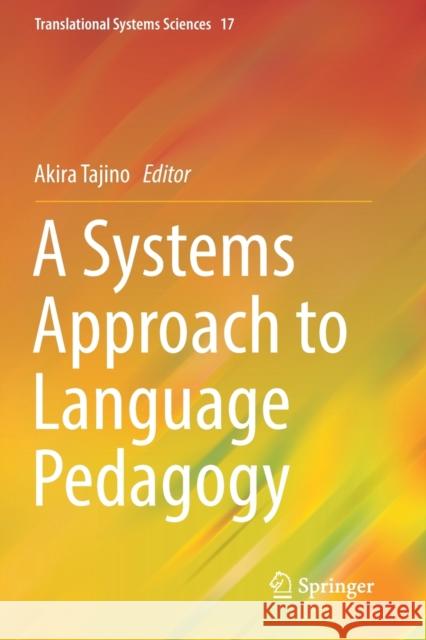A Systems Approach to Language Pedagogy » książka
topmenu
A Systems Approach to Language Pedagogy
ISBN-13: 9789811362743 / Angielski / Miękka / 2020 / 149 str.
A Systems Approach to Language Pedagogy
ISBN-13: 9789811362743 / Angielski / Miękka / 2020 / 149 str.
cena 241,50
(netto: 230,00 VAT: 5%)
Najniższa cena z 30 dni: 231,29
(netto: 230,00 VAT: 5%)
Najniższa cena z 30 dni: 231,29
Termin realizacji zamówienia:
ok. 16-18 dni roboczych.
ok. 16-18 dni roboczych.
Darmowa dostawa!
Kategorie BISAC:
Wydawca:
Springer
Seria wydawnicza:
Język:
Angielski
ISBN-13:
9789811362743
Rok wydania:
2020
Wydanie:
2019
Numer serii:
000470142
Ilość stron:
149
Waga:
0.24 kg
Wymiary:
23.39 x 15.6 x 0.91
Oprawa:
Miękka
Wolumenów:
01
Dodatkowe informacje:
Wydanie ilustrowane











